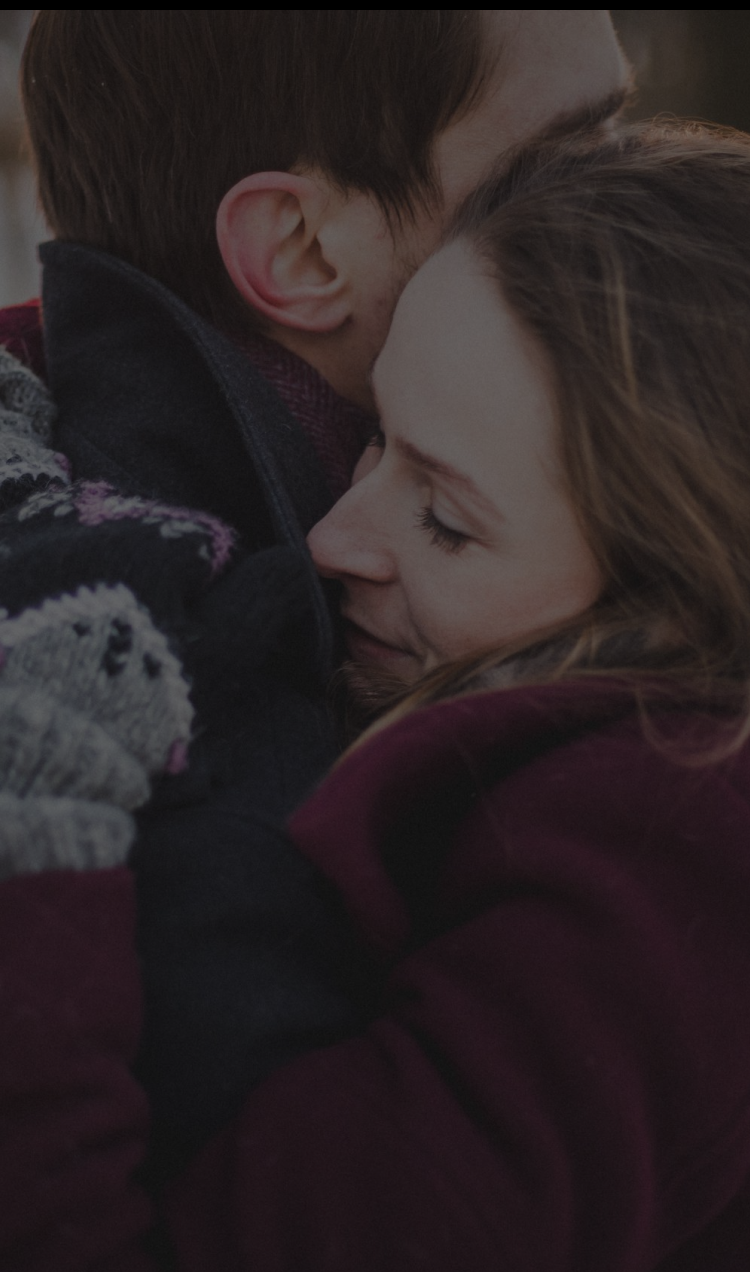If you are sacrificing your happiness for the happiness of someone else, you could be in a codependent relationship. Feeling trapped in a codependent dynamic is common, but there are ways to identify codependency in your relationships and take the steps needed to change it.
What is Codependency?
The DSM-5 defines codependency as “A pervasive and excessive need to be taken care of that leads to submissive and clinging behavior and fears of separation…” In other words, codependency is more than a “clingy” best friend or lover. It occurs when one person has no autonomy and relies on their partner to validate their self-worth. Codependency sometimes referred to as “relationship addiction,” is often a learned behavior passed down from generation to generation.
Codependency in relation to addiction is common. Often a loved one provides money, food, and shelter for the addicted individual, enabling them to continue destructive behaviors. Although codependency is frequently associated with substance misuse1anyone can fall victim to a codependent relationship. Codependent dynamics can show up in platonic, romantic, or familial relationships. Those in a codependent dynamic frequently rearrange their entire lives to please or enable the other person with no regard for themselves.
Codependency and Substance Abuse
Codependency and substance abuse go hand in hand. One partner starts abusing substances, and the other partner begins a series of behaviors that ultimately enable substance abuse. Some of these behaviors include covering up the addiction, making excuses for the addict, and taking responsibility for any consequences caused by the substance abuse. This causes the addict to depend on their partner to support their habit, and it causes their partner to rely on them for validation and attention.
Codependent VS Dependent
The first step in identifying codependency in your relationships is understanding the difference between normal reliance on a partner and unhealthy codependent tendencies. In a healthy relationship, both members depend on each other for love and support while valuing the relationship. In a codependent relationship, one person continuously seeks validation from the other while sacrificing their happiness in return.
The difference between a dependent and a codependent relationship2is in a codependent relationship, one partner isn’t happy unless they are emotionally and mentally supporting their partner to extreme ends. This often leads to enabling their partner to continue destructive behaviors with the codependent to disregard their own needs.
In a dependent relationship, partners take turns supporting each other and adding value to the relationship. Dependent relationships allow space to be with each other while also pursuing personal hobbies or passions away from the relationship.
A codependent person has little value outside of the relationship, keeping them from exploring other interests. They ignore or push through their emotions because they feel their needs are less important than their partners.
One or both people can be codependent in a relationship, with one person enabling the other to rely on their sacrifices to be successful. Each dynamic is destructive for both parties involved.
How Does Codependency Start?
The development of codependency is different for everyone, but it commonly develops out of unhealthy family dynamics in childhood3. Children are like sponges – they absorb everything happening in their environment to better understand their place in the world. When that environment is chaotic, abusive, unreliable, or scary, kids don’t have the foresight to understand it isn’t normal. In other words, they have no way to tell whether the relationships their seeing are healthy or not.
This leads children growing up in dysfunctional homes to blame themselves for the family’s problems. Guilt, anxiety, and fear set the foundation for kids to feel unworthy and incapable of providing value to the family. This internal belief system about themselves knocks over the first domino in a long line of codependent traits later in life.
When children lack a stable, safe home environment, several things happen. First, they become a caretaker by picking up their parents slack doing things like caring for siblings, themselves, or even their parents. Next, they learn that people who say they love them will hurt them or disappoint them. Then, they develop people-pleasing tendencies to feel validation and control over their own lives. Inevitably, they begin to feel guilt for things they cannot control, leading to plummeting self-worth and self-esteem. This leads to defiant independence, extreme responsibility, and trust issues.
Codependency in adulthood continues to develop as these individuals are used to having their needs met and are more comfortable meeting others’ needs. Meeting the needs of others is the only way they find validation in themselves.
10 Ways to Identify Codependency in Your Relationships
Look for these signs if you believe you’re in a codependent relationship.
- You Sacrifice Your Happiness for Your Partner’s Happiness
Sacrificing your happiness for someone else’s can manifest in several ways. Some examples include always bending to the other person’s will, allowing them to make all the decisions, and catering to their needs instead of your own. You may struggle to say no in fear of disappointing or angering them. If you feel extreme anxiety when disagreeing with your partner or presenting your own opinions, you might be in a codependent relationship.
- Your Relationship is One-Sided
Feeling like you’re the only one giving in the relationship is a sign of codependency. If you feel like the relationship would disintegrate without your effort, the dynamic is one-sided. This could look like taking on full management of your partner’s emotions, along with carrying the household responsibilities.
- You Feel Resentful of Being Responsible for Everything
In codependent relationships, one person is responsible for everything, including their partner. This often leads them to feel resentful towards the other person. Unfortunately, communication within a codependent relationship is unhealthy at best. Codependent people struggle to identify and express their emotions, so resentment is often internalized, leading to anxiety, depression, and low self-esteem.
- You Feel the Need to Control, Fix, or Rescue
Because of dysfunctional family dynamics, you feel the need to control, fix, or rescue your partner to validate yourself. This leads people with codependent tendencies to seek out partners who need to be fixed or rescued, making it easy for them to put their own needs on the back burner to focus on their partner’s issues.
- You Focus More on Taking Care of Others Instead of Taking Care of Yourself
You routinely ignore your own needs to focus on your partner’s needs. This could look like giving up a hobby to devote more time to your partner. It could also look like ignoring your emotions and insights to conform to their will.
- You Constantly worry About Setting Your Partner Off
If you walk on eggshells around your partner, you could be in a codependent relationship. Experiencing extreme anxiety around setting your partner off is a sign that your validation comes from external sources (i.e., your partner). If you set them off, you feel unworthy because their vision of you is how you see yourself.
- You are Overly Concerned About What Your Partner is Doing
When you feel out of control as a child, you often make up for that by maintaining control in your present life. Control makes you feel safe, so you try to control everything around you, including the will of others – especially your partner. This can limit your ability to express emotions or latch onto opportunities.
- You Fear Rejection or Criticism
Your self-worth is wholly rooted in how other people perceive you. When you experience rejection or criticism, you immediately believe it is accurate, even if you don’t speak it aloud. You look for validation in others by people-pleasing, controlling, or caretaking.
- You Feel Guilt Around Thinking or Caring for Yourself
If you feel guilt around caring for yourself, you might be codependent. If your partner makes you feel guilty for thinking or caring for yourself, your relationship could be codependent, as well. Guilt around caring for yourself leads to ignoring your physical or emotional needs and desires.
- You Stay in the Relationship Even Though Your Partner Has Hurt You in the Past
Allowing your partner to disappoint or hurt you multiple times is a sign of codependency. It stems from a lack of boundaries and self-esteem in the relationship. Subconsciously, you believe you deserve how you’re being treated. Codependents who do this often justify it by thinking they can fix their partner in the future.
Treatment for Codependency
A codependent individual must accept their codependent traits and take small steps to enhance their independence and self-worth. Those in a codependent relationship must take strides to earn independence from the relationship. Keep in mind, within a codependent relationship, both partners have to accept their negative traits to change them.
Healing from codependency4 takes time and emotional energy. Because of this, it’s important to talk to a therapist who can help you unravel the reason for the codependency in a safe environment. Individual, group, or couples therapy is a great way to start your journey of independence.
People who experienced dysfunctional childhoods will need to understand past trauma to heal from it. This can be very emotionally taxing, so it’s crucial you find a mental health professional who can teach you the coping skills necessary to heal effectively.
In many ways, codependency is a side effect of poor boundaries. Boundaries help protect your emotional and mental health. Boundaries are not walls put up to ward off others or to ignore your emotions. They are put in place to protect your energy and values.
Having healthy boundaries means listening to your emotions to understand your personal needs. The more you honor and respect your energy, the more comfortable setting boundaries will become. Remember, a licensed mental health professional can guide you on your self-discovery journey, which will guide you towards healthier relationships.
References
- https://coalitionrecovery.com/implications-of-codependency/#:~:text=According%20to%20DSM%2D5%20(2013)%20DPD%2C%20characterized%20as,contexts.%20Criteria%20include%20difficulty%20wit
- https://www.psychologytoday.com/us/blog/evolution-the-self/201412/codependent-or-simply-dependent-what-s-the-big-difference
- https://www.researchgate.net/profile/Rebecca_Warner/publication/12601697_Family_Stressors_as_Predictors_of_Codependency/links/56d9c6f008aee1aa5f829387/Family-Stressors-as-Predictors-of-Codependency.pdf
- https://www.verywellmind.com/what-s-the-best-codependency-treatment-5070487
- https://www.mhanational.org/co-dependency
*We cannot understate the importance of working with a doctor and therapist as you recover. This content is intended as medical advice. Interested in therapy or treatment? Call us today or chat below with a team member for more information.






